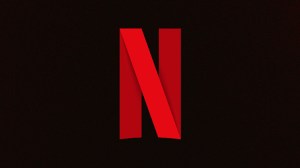Social Justice Warriors are coming for your comic books, or at least that’s what far right news outlets and comic book message boards and subreddits would have you believe. The outcry can be seen in the comments section of any news post in which Marvel Comics introduces a new legacy character that is a woman or a person of color. “More comics for social justice warriors!” “Marvel thinks all white men are nazis!” “What’s next, a transgender, bisexual, Mexican taking over as the Sentry?”
Videos by ComicBook.com
Miles Morales as Spider-Man, Kamala Khan as Ms. Marvel, Riri Williams as Ironheart, Sam Wilson as Captain America, and Jane Foster as Thor are just some examples of characters that have been criticized by a vocal group within comic book fandom simply for existing. The characters are seen as part of a new and aggressively forced progressive agenda within the professional comics community.
The problem with this line of thinking is that there’s nothing new about it. Superheroes have always, by design, been “social justice warriors.”
Captain America is, arguably, the greatest example. Since taking over the Captain America comics for Marvel, Nick Spencer has been roundly criticized for continuing to write Sam Wilson, the African America hero who formerly operated under the persona of the Falcon (though it was Rick Remender who wrote Wilson into the role of Captain America), and for writing original Captain America Steve Rogers into a controversial storyline where he is now an agent of Hydra. However, more than anything Spencer has been criticized simply for writing political themes into his Captain America stories. For example, one story involved the Sons of the Serpents, a supervillain group founded on white supremacist ideology, kidnapped Mexicans as the illegal crossed the United States border. Spencer even made one illegal immigrant into the new Falcon.
But Captain America was created specifically to be a political symbol and a hero for social justice. Captain America was created by Joe Simon and Jack Kirby, two young Jewish Americans, as a direct response to the rise of the fascism and the Third Reich in Germany. Simon and Kirby debuted Captain America with a cover that depicted the Sentinel of Liberty punching Adolf Hitler in the face.

Keep in mind that this was before the attack on Pearl Harbor when the debate about whether the United States should enter World War II was still hot. Marvel Comics caught a lot of criticism for making such a bold political statement with their comics. It can be easy to forget just how bold it was since Nazis have since been used as generic if not cartoonish villains in countless films and video games since then.
Simon and Kirby designed Captain America specifically to be a hero who fought against the rise of fascism and the persecution of the Jewish people, and they never apologized for it. From his very conception, Captain America fought for social justice even when the nation he represents was hedging.
Plenty of other classic heroes shares similar roots. When Jerry Siegel and Joe Shuster first created Superman, the Man of Steel was relatively underpowered compared to how he is depicted today, but what power he did have was used to fight wealthy, corporate villain who were taking advantage of the poorer class, serving as a progressive and borderline socialist and populist hero who took on white collar criminals. Superman also took definitive stands on subjects like refugee relief, as he considered himself to be a refugee from Krypton who found refuge on Earth.
Superheroes Have Always Been Social Justice Warriors
William Moulton Marston created Wonder Woman to represent the feminine strength that had until then been almost entirely absent from superhero fiction. The idea was his wife’s, Elizabeth Holloway Marston, and they created Wonder Woman specifically in the hope of educating comic book readers on feminist philosophy and sexual liberation.
While not every superhero started with a clear progressive mission, several have acquired one over the course of their history and that mission has become their most well-known and definitive trait. Green Arrow was a fairly bland riff on the Batman archetype when he was created, but his most iconic iteration is the progressive crusader who teamed with the more conservative Hal Jordan in the 1970s Green Lantern/Green Arrow series.
The X-Men began with the subtext of a minority metaphor but featured a team roster that was all white and nearly all male. When the concept was relaunched in the 1970s, they replaced most of the original team with a much more diverse roster, including an African woman, a Native American, and a communist Russian (a relatively big deal in the era).
These criticisms, which are often voiced before anyone has had a chance to read the new hero’s first adventure, seem fueled by fear. It’s as if fans are worried that more heroes like them will mean fewer heroes like us. They forget that there are no limits on fictional space, meaning there’s plenty of room for the Marvel, DC Comics, or any other fictional universe to have a cast of characters as diverse as the real world.
Some fans throw around the argument that superhero comics are meant to be escapism and free from the troubles of the real world. There’s nothing wrong with escapism. Escapism is important, and anyone who downplays that has likely led a life that has never needed escaping from, but just because a work is considered escapism doesn’t mean it doesn’t have something to say or offer. Even a story that tries to have no message as all says something by silently accepting the status quo.
Neil Gaiman once said, “Once you’ve escaped, once you come back, the world is not the same as when you left it. You come back to it with skills, weapons, knowledge you didn’t have before. Then you are better equipped to deal with your current reality.” The nature of a work of escapism effects what skills, tools, and knowledge we acquire before returning to the real world, and the fictional places we chose to escape into, either as consumers or creators, says something about who we are and who we will become.

Superheroes were always meant to be social justice warriors. If they’re not that then they’re little more than individuals empowered to maintain the status quo, and if our heroes aren’t inspiring us to build a better world than the one we have now, then what really is the point of them?








